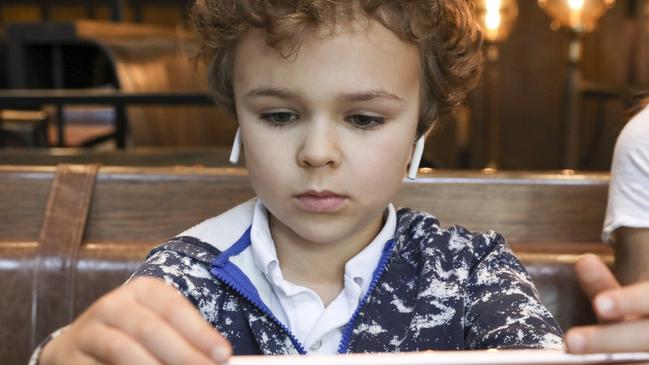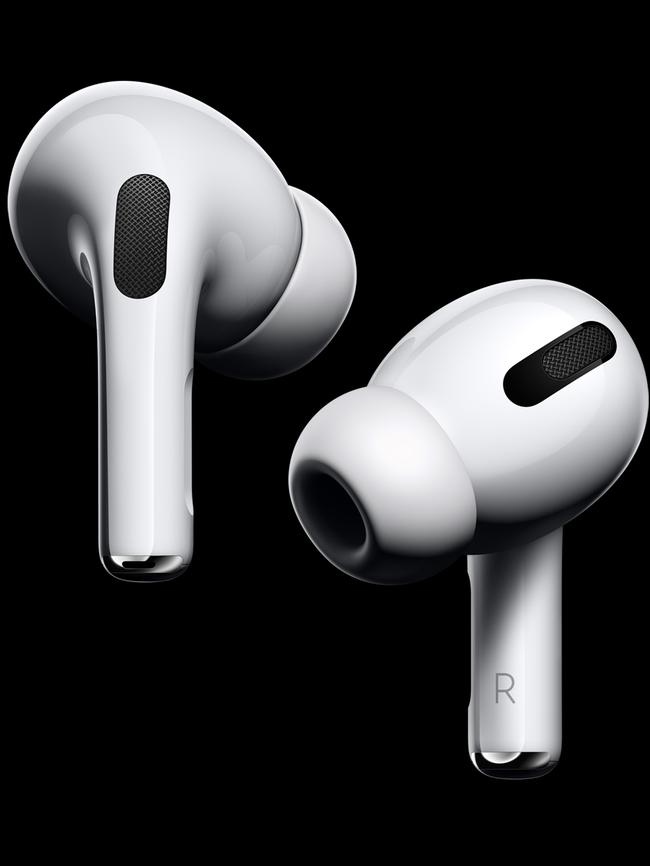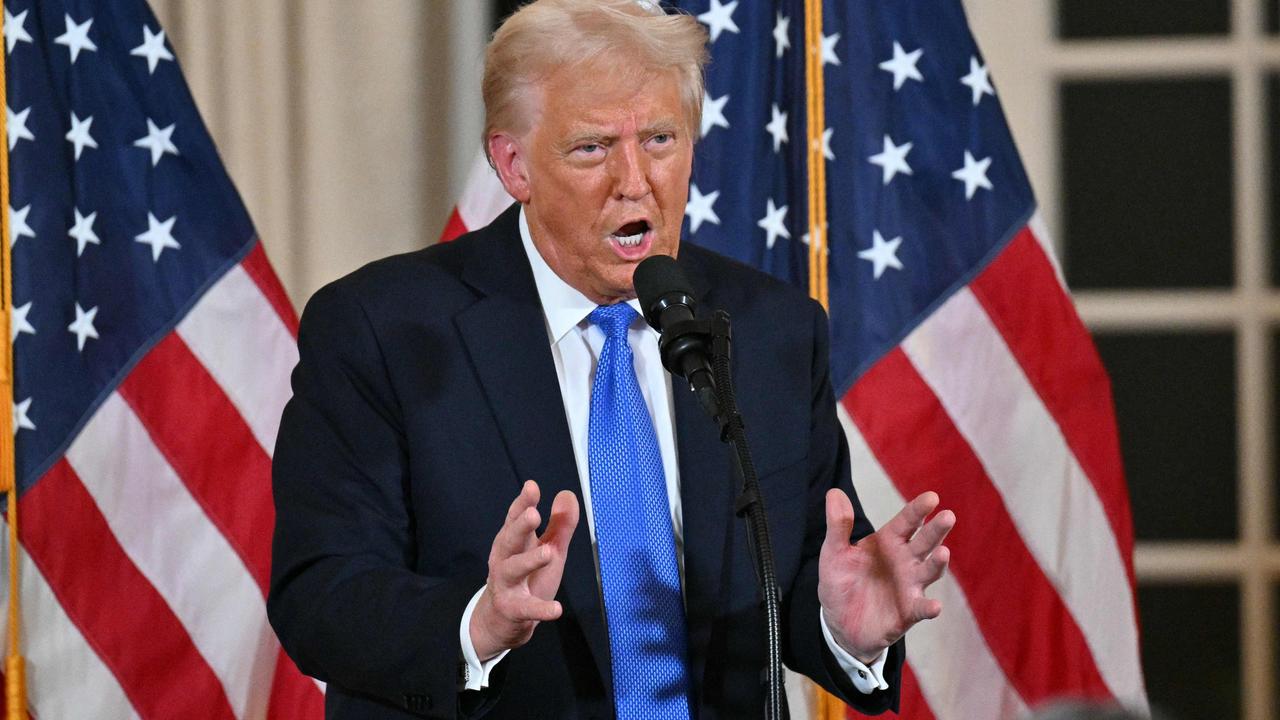AirPods: Status symbol for kids or escape from reality?
Children may not learn to cope in the real world if they’re constantly tuning out.

All Jacob Mars wanted for Christmas was a pair of AirPods. Not the regular $249 model but the AirPods Pro, which cost $150 more. He is aged 11.
“I think they’re pretty cool,” Jacob says.
AirPods, once just an adult status symbol, are turning up in the playground.
Kids’ persistent nagging for the tiny wireless earbuds have parents groaning about the cost, the risk of loss or theft and concerns that they scream “privilege”.
“He’s very into brands right now. I think it’s the influencers on YouTube who are all wearing Gucci and driving Teslas. He’s really into cars and Gucci. We are really not that kind of family,” says his frustrated mother, Janet Mars, of Los Angeles.
“I don’t go out and buy Gucci.”
The desire for the high-end tech may well be due to the fact even very young children see them all over social media, but it also speaks to the rising popularity of “hearables”, which my colleagues predict will be among the life-changing technologies of 2020.
By the end of the year, eMarketer predicts, more than one-third of the US population will be using smart ear-worn devices.
Since Jacob didn’t want anything else for Christmas, his mother agreed to buy him the regular AirPods. She told him if he earned enough money or received enough cash to make up the difference, he could return them and get the AirPods Pro.
Jacob had gone to the Apple store to compare the standard AirPods to the Pro.
“The regular AirPods hurt my ears because they’re harder. The Pros have silicone tips so they’re softer and they fit in my ear better, and I like how they have noise cancellation,” Jacob said.

Jacob cobbled together the extra money and exchanged the regular ones for the $399 AirPods Pro, which were on back-order. He finally got them about two weeks ago.
His mother says the deal has caused her some anxiety.
“Why does he have to have something so expensive and extravagant? I don’t even have a pair. Is he responsible enough not to lose them? Is he going to have those on all the time and not hear us or talk to us?” she wonders.
It’s that last concern that experts focus on.
“The decision of when to block out the world and when to let it in takes a certain amount of maturity,” says Sherri Hope Culver, director of the Centre for Media and Information Literacy at Temple University in Philadelphia, Pennsylvania.
“I have concerns about how kids will learn to cope in the real world if they’re constantly shifting their environment into alternate spaces they can control.”
Apple says there isn’t a recommended age for purchasing AirPods but parents whose children use devices with iOS 13 can monitor audio levels in the Health app.
Parents sometimes want their kids to tune out. Then AirPods come in handy. Lisa Roberts Hurd’s six-year-old son, Grayson, has used her and her partner’s AirPods and wants a pair of his own.
“Admittedly, when we’ve been out travelling or in a place where we need to have him be a little quieter and the sound can’t be on and he’s looking at our phones or a tablet, we have given him our AirPods. It’s not something I’m proud of,” says Roberts Hurd, a culinary nutritionist in New York.
But she doesn’t want him to overuse them or have his own pair out of concern the Bluetooth transmission could be harmful to his hearing, despite inconclusive data on either issue.
“He knows he can’t have them because none of his friends have them yet. As he gets to be eight, nine, 10, I think that will change because he’ll be seeing more kids with AirPods,” she says.
Kirstie Miranda has been fending off her 13-year-old son’s requests for AirPods since he got his first phone in October.
“He’s tried asking grandma, he’s tried everyone. It’s a luxury item I don’t think a child needs,” says Miranda.
Jerrold Ivery knows how hard it is for a child to hold on to such a small item. His 10-year-old son Justus has been hounding him for AirPods since his 13-year-old sister got a pair.
He started with a $30 pair of generic wireless earbuds and lost them two weeks later. More recently, he borrowed his dad’s AirPods while at the mall — and left the charging case at a store.
“The first thing I said was ‘this just proves to me that you’re not ready to handle a $US160 ($240) responsibility’,” says Ivery.
“I was going to give him AirPods for his 11th birthday next month, but I need to hold off.”
Johnny Sanchez’s 10-year-old son was begging for AirPods because his three older siblings all have them. Sanchez finally gave his youngest child his AirPods when he upgraded his own.
“We’ve talked about how it feels cool to have them but you don’t rub it in people’s faces,” says Sanchez.
Sanchez doesn’t have to worry about his son showing off to his classmates because he says his school has banned AirPods. Other US schools have banned them and regular earbuds too, arguing they cause students to be distracted and they can be used to cheat on tests.
Erin Culling, a Los Angeles marketing manager, recently caved in and bought her son AirPods for his 13th birthday after he had been begging for them for a year. She tried getting him a pair of cheaper knock-offs but he complained that the sound quality was poor and that they kept falling out.
She doesn’t find the AirPods more problematic than wired earbuds. With either kind, she says, “it takes me coming into his peripheral vision for him to notice me”.
The real problem was her husband lacked AirPods: “I had to buy two pairs.”
The Wall Street Journal


